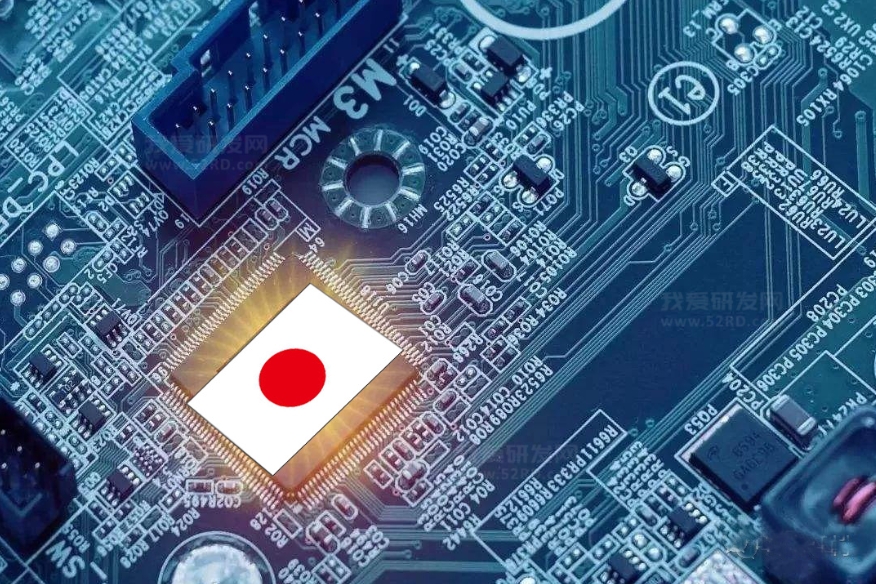美国是如何摧毁日本半导体产业的?
正文翻译

美国是如何摧毁日本半导体产业的?

美国是如何摧毁日本半导体产业的?
评论翻译
Arlind Lama
Follow Anti-Imperialist8h
I am sure that everyone has heard about “Huawei” an Chinese tech company who has produced great innovation that has even surpassed Apple in some areas, we have seen that the United States has imposed sanctions,tech restrictions, in order to bring down Huawei but they failed and Huawei progress has been slowed down due to some technologies being reliant on US, but it is slowly rising up again, since the domestic industry is evolving in China.
But yes this isn't the first time to happen in the world history, there was also an company in Japan who had the same fate as Huawei and was great at producing chips, It's name was Toshiba.
我相信每个人都听说过中国科技公司华为,它拥有伟大的创新能力,甚至在某些领域超过了苹果,我们看到,美国对华为实施了制裁和技术限制,目的是要打倒华为,但他们失败了,由于华为某些技术需要依赖美国,因此华为的发展速度也放缓了,但是由于国内产业的发展,华为又在慢慢的崛起。
在世界历史上,这种事情不止发生了一次,日本有一家公司和华为有着同样的命运,它的芯片生产能力非常出色。这家公司的名字叫做东芝。
Japan achieved economic growth in 1970s, but after the economy became strong, Japan was not willing to only produce various consumer electronic products, and they turned their attention to semiconductors, the commanding heights of commercial technology at that time. However, at that time, the technology of United States was too powerful, and competing with the United States was tantamount to seeking food from a tiger. The Japanese goverment is well aware that without policy support, it is simply unable to compete with the United States. After planning, Japan introduced relevant policies to protect domestic industries.
日本在上世纪70年代实现了经济增长,但是在经济强大起来后,日本不愿意再只生产各种消费类电子产品,他们将注意力转向了当时商业技术的制高点半导体。但是当时美国的技术太强大了,与美国竞争无异于虎口夺食。日本政府很清楚如果没有政策支持,日本根本就无法和美国竞争。经过规划之后,日本出台了相关的保护国内产业的政策。
One is to restrict the import of foreign products. Not only a very small number of electronic components are allowed to be imported, but also high tarrifs are set up.
The second is to strictly restrict foreign semiconductor companies from setting up branches in Japan. If you have set up branches then your market share shouldn't be higher than the Japanese one.
一是限制外国产品进口。被允许进口的电子元器件数量不仅非常的少,而且日本还设置了很高的关税。
二是严格限制外国半导体企业在日本设立分公司。如果你已经在日本设立了分公司,那么你所占据的市场份额就不能高于日本企业。
The third is goverment-led enterprise cooperation. Japan's ministry of international trade and industry in 1976 convened Fujitsu,Hitachi,Mitsubishi,Nippon Electric and Toshiba, 5 of Japan high tech companies were set to establish a very large scale technology research association who would work together to research and develop chips
三是政府主导企业合作。1976 年,日本通商产业省召集富士通、日立、三菱、日本电气和东芝 5 家日本高科技公司成立了一个规模很大的技术研究协会,共同研发芯片。
With Japan's low-cost human resources and better staff quality, in just ten years, Japan's semiconductor technology has quickly surpassed the United States and become the leader of the world's semiconductor industry.
By 1985 more than half of the global memory chip market share was captured by Japanese companies. Among the top 10 semiconductor companies in the world,Japanese companies NEC, Hitachi, Toshiba, Fujitsu and Panasonic are all on the list.
日本凭借低成本的人力资源和更好的员工素质,短短十年时间,日本的半导体技术就迅速超过了美国,成为世界半导体产业的领导者。
到1985年,日本公司占据了全球存储芯片市场一半以上的份额。在世界排名前10位的半导体企业中,日本的NEC、日立、东芝、富士通、松下都榜上有名。
On May 27, 1987, the Japanese Metropolitan Police arrested Ryuji Lin, director of the foundry department of Japan's Toshiba Machinery Company, and Hiroaki Tanimura, director of the machine tool bussines department. Toshiba Machinery Co Ltd, had conspired with Norway's Kongsberg Company to illegally export high-tech products to the Soviet unx. Lin Longji and Tanimura Hiroaki were accused of being directly responsible for this high-tech smuggling case.
Obviously, there is CIA behind this.
So why is the United States arresting Toshiba?.
1987年5月27日,日本警察厅逮捕了日本东芝机械公司铸造部部长林隆三和机床事业部部长谷村弘明。东芝机械有限公司与挪威康斯伯格公司合谋非法向苏联出口高科技产品。林隆三和谷村弘明被指控对这起高科技走私案件负有直接责任。
很明显,这幕后的黑手就是中情局
所以为什么美国要逮捕东芝的工作人员呢?
Because at that time Toshiba was in heyday, it was the largest and the most advanced semiconductor company in Japan. Not only that, Toshiba is also a leader in many other segments. It was once regarded as the “pride of the Japanese manufacturing industry”.
At that time, it was not just Toshiba that exported precision machines tools to the Soviet unx. On the import list of the Soviet unx, companies such as Norway,West Germany,and Italy were written. However why would US just deal with Toshiba?? Because the US wanted to suppress the Japanese semiconductor industry, and Toshiba was the most technologically advanced company in this industry.
因为当时东芝正处于全盛时期,它是日本最大、最先进的半导体公司。不仅如此,东芝在许多其他领域也处于领先地位。它一度被誉为“日本制造业的骄傲”。
当时向苏联出口精密机床的不仅仅是东芝,在苏联的进口清单上,赫然还有挪威,西德和意大利等国企业的名字。但是为什么美国只对付东芝呢?因为美国要打压日本半导体产业,而东芝则是这个产业里面技术最先进的企业。
Two Toshiba executives involved in the case will be sentenced to 10 years in prison; to close Toshiba's factories in the United States and to impose 100% tarrifs on all Toshiba products sold to the United States, and to ban Toshiba from exporting goods to the United States for 5 years, levy on Toshiba 1 trillion yen in fines (equivalent to $16 billion today)
In the name of investigation, the CIA asked Toshiba to reveal all its core technologies and details. The technologies were quickly passed on to American Semiconductor Companies by the CIA.
Of course, hitting a small Toshiba isn't naturally the goal of the United States, it's goal was to castrate the Japanese semiconductor industry.
涉案的两名东芝高管将被判处10年有期徒刑;关闭东芝在美国的工厂,对卖往美国的东芝产品征收100%的关税,并在5年内禁止东芝向美国出口商品,对东芝征收1万亿日元的罚款(相当于现在的160亿美元)
中情局以调查的名义,要求东芝公布所有核心的技术细节。这些技术很快被中情局转交给了美国的半导体企业。
当然打击一个小小的东芝自然不是美国的目标,美国的目标是要阉割日本的半导体产业。
In 1986, the United States singed the first semiconductor agrement considering that Japan's trade protection and goverment subsidies seriously violated the order of the free market competition. Japan is required to completely open up the semiconductor market and increase the opportunities for foreign semiconductor companies to enter
In 1987, in order to enhance the competitiveness of domestic products, the United States imposed a 100% tariff on all electronic components exported from Japan to the United States. For products exported from the United States to Japan, Japan can not receive any tariffs. Directly obliterate the price advantage of Japanese components
In 1991, the United States and Japan signed the second semiconductor agrement, which clearly stipulated that the market share of foreign semiconductor products in Japan should reach more than 20%
Under these three steps, United States managed to destroy the Japanese semiconductor.
1986年,美国认为日本的贸易保护政策和政府补贴严重违反了自由市场竞争的秩序,于是美国和日本签署了第一份半导体协议。该协议要求日本彻底开放半导体市场,增加外国半导体企业进入日本的机会。
1987年,为了增强国内产品的竞争力,美国对日本出口到美国的所有电子元器件征收100%的关税。而对于从美国出口到日本的产品,日本不能收取任何关税。这直接消除了日本零部件的价格优势
1991年美国和日本签署了第二份半导体协议,其中明确规定外国半导体产品在日本的市场份额应达到20%以上
在这三个措施下,美国成功摧毁了日本的半导体。
Garrobo
· 6h
Which begs the question: why the Japanese people supports the US? It is obvious that the United States deliberately sabotaged Japan's development.
One thing that would propel Japan development would be to ditch the US masters and turn to China. But this seems extremely unreal.
这就引出了一个问题:为什么日本人还要支持美国呢?很明显美国在蓄意破坏日本的发展。
有一个办法可以推动日本继续发展,那就是抛弃美国主子,转投中国。但是这似乎很不现实。
Arlind Lama
· 6h
The Japanese are not unintelligent. If you look at the comments on Japanese Internet users, you will find that they have been discussing their country's status. They're fully aware of the dominance of the US military presence on their land, which even overshadows their government. However, they have accepted this status-quo in the post WWll and have no choice but to be loyal to their master.
Switching allegiance from the US to China may significantly help Japan move forward. But such a move seems highly unlikely, and there are two major reasons for this. Firstly, Japan lacks a revolutionary leader. No politician dares to stand up to the United States. Any PM who dares to challenge US influence often faces swift resignation.
日本人不是不聪明。如果你去看看日本网民的评论的话,你就会发现他们一直在讨论自己国家的地位。他们完全知道美军在自己土地上的统治地位,在美军面前,甚至连自己本国的政府都要黯然失色。然而,他们已经接受了二战后的这种现状,别无选择,只能忠于他们的主人。
从效忠美国转而效忠中国或许确实可以极大的帮助日本向前发展。但是这种可能性极低,原因主要有两个。第一,日本缺少一个革命领袖。没有一个政治人物敢于反抗美国。任何敢于挑战美国影响力的首相往往都会面临迅速下台的结局。
Secondly, the Japanese have a self-perception akin to how Germans see themselves—a superior race above others in Asia. Since the Meiji modernization era, they've been instilled with the belief that their race is the most advanced across Asia. With China's rise, Japan's superiority has diminished. Economically, China has surpassed every Japanese company.
Realistically, the best course for Japan would be to collaborate with China, working toward a new monetary system benefiting all Asian countries. They could also partner with China in technology to rejuvenate Japanese companies. But that can't happen unless a radical change happens on their country.
第二,在自我认识方面,日本人和德国人很像——他们对亚洲其他民族有一种种族优越感。自明治维新以来,他们就被灌输了这样一种信念,即日本民族是亚洲最先进的民族。随着中国的崛起,日本的优越感已经大为减弱。在经济上,日本的每一家都已经被中国超过去了。
实际上,对日本来说,最好的做法是与中国合作,努力建立一个有利于所有亚洲国家的新货币体系。他们还可以在技术领域和中国合作,重振日本企业。但是这不可能发生,除非日本发生彻底的改变。
Follow Anti-Imperialist8h
I am sure that everyone has heard about “Huawei” an Chinese tech company who has produced great innovation that has even surpassed Apple in some areas, we have seen that the United States has imposed sanctions,tech restrictions, in order to bring down Huawei but they failed and Huawei progress has been slowed down due to some technologies being reliant on US, but it is slowly rising up again, since the domestic industry is evolving in China.
But yes this isn't the first time to happen in the world history, there was also an company in Japan who had the same fate as Huawei and was great at producing chips, It's name was Toshiba.
我相信每个人都听说过中国科技公司华为,它拥有伟大的创新能力,甚至在某些领域超过了苹果,我们看到,美国对华为实施了制裁和技术限制,目的是要打倒华为,但他们失败了,由于华为某些技术需要依赖美国,因此华为的发展速度也放缓了,但是由于国内产业的发展,华为又在慢慢的崛起。
在世界历史上,这种事情不止发生了一次,日本有一家公司和华为有着同样的命运,它的芯片生产能力非常出色。这家公司的名字叫做东芝。
Japan achieved economic growth in 1970s, but after the economy became strong, Japan was not willing to only produce various consumer electronic products, and they turned their attention to semiconductors, the commanding heights of commercial technology at that time. However, at that time, the technology of United States was too powerful, and competing with the United States was tantamount to seeking food from a tiger. The Japanese goverment is well aware that without policy support, it is simply unable to compete with the United States. After planning, Japan introduced relevant policies to protect domestic industries.
日本在上世纪70年代实现了经济增长,但是在经济强大起来后,日本不愿意再只生产各种消费类电子产品,他们将注意力转向了当时商业技术的制高点半导体。但是当时美国的技术太强大了,与美国竞争无异于虎口夺食。日本政府很清楚如果没有政策支持,日本根本就无法和美国竞争。经过规划之后,日本出台了相关的保护国内产业的政策。
One is to restrict the import of foreign products. Not only a very small number of electronic components are allowed to be imported, but also high tarrifs are set up.
The second is to strictly restrict foreign semiconductor companies from setting up branches in Japan. If you have set up branches then your market share shouldn't be higher than the Japanese one.
一是限制外国产品进口。被允许进口的电子元器件数量不仅非常的少,而且日本还设置了很高的关税。
二是严格限制外国半导体企业在日本设立分公司。如果你已经在日本设立了分公司,那么你所占据的市场份额就不能高于日本企业。
The third is goverment-led enterprise cooperation. Japan's ministry of international trade and industry in 1976 convened Fujitsu,Hitachi,Mitsubishi,Nippon Electric and Toshiba, 5 of Japan high tech companies were set to establish a very large scale technology research association who would work together to research and develop chips
三是政府主导企业合作。1976 年,日本通商产业省召集富士通、日立、三菱、日本电气和东芝 5 家日本高科技公司成立了一个规模很大的技术研究协会,共同研发芯片。
With Japan's low-cost human resources and better staff quality, in just ten years, Japan's semiconductor technology has quickly surpassed the United States and become the leader of the world's semiconductor industry.
By 1985 more than half of the global memory chip market share was captured by Japanese companies. Among the top 10 semiconductor companies in the world,Japanese companies NEC, Hitachi, Toshiba, Fujitsu and Panasonic are all on the list.
日本凭借低成本的人力资源和更好的员工素质,短短十年时间,日本的半导体技术就迅速超过了美国,成为世界半导体产业的领导者。
到1985年,日本公司占据了全球存储芯片市场一半以上的份额。在世界排名前10位的半导体企业中,日本的NEC、日立、东芝、富士通、松下都榜上有名。
On May 27, 1987, the Japanese Metropolitan Police arrested Ryuji Lin, director of the foundry department of Japan's Toshiba Machinery Company, and Hiroaki Tanimura, director of the machine tool bussines department. Toshiba Machinery Co Ltd, had conspired with Norway's Kongsberg Company to illegally export high-tech products to the Soviet unx. Lin Longji and Tanimura Hiroaki were accused of being directly responsible for this high-tech smuggling case.
Obviously, there is CIA behind this.
So why is the United States arresting Toshiba?.
1987年5月27日,日本警察厅逮捕了日本东芝机械公司铸造部部长林隆三和机床事业部部长谷村弘明。东芝机械有限公司与挪威康斯伯格公司合谋非法向苏联出口高科技产品。林隆三和谷村弘明被指控对这起高科技走私案件负有直接责任。
很明显,这幕后的黑手就是中情局
所以为什么美国要逮捕东芝的工作人员呢?
Because at that time Toshiba was in heyday, it was the largest and the most advanced semiconductor company in Japan. Not only that, Toshiba is also a leader in many other segments. It was once regarded as the “pride of the Japanese manufacturing industry”.
At that time, it was not just Toshiba that exported precision machines tools to the Soviet unx. On the import list of the Soviet unx, companies such as Norway,West Germany,and Italy were written. However why would US just deal with Toshiba?? Because the US wanted to suppress the Japanese semiconductor industry, and Toshiba was the most technologically advanced company in this industry.
因为当时东芝正处于全盛时期,它是日本最大、最先进的半导体公司。不仅如此,东芝在许多其他领域也处于领先地位。它一度被誉为“日本制造业的骄傲”。
当时向苏联出口精密机床的不仅仅是东芝,在苏联的进口清单上,赫然还有挪威,西德和意大利等国企业的名字。但是为什么美国只对付东芝呢?因为美国要打压日本半导体产业,而东芝则是这个产业里面技术最先进的企业。
Two Toshiba executives involved in the case will be sentenced to 10 years in prison; to close Toshiba's factories in the United States and to impose 100% tarrifs on all Toshiba products sold to the United States, and to ban Toshiba from exporting goods to the United States for 5 years, levy on Toshiba 1 trillion yen in fines (equivalent to $16 billion today)
In the name of investigation, the CIA asked Toshiba to reveal all its core technologies and details. The technologies were quickly passed on to American Semiconductor Companies by the CIA.
Of course, hitting a small Toshiba isn't naturally the goal of the United States, it's goal was to castrate the Japanese semiconductor industry.
涉案的两名东芝高管将被判处10年有期徒刑;关闭东芝在美国的工厂,对卖往美国的东芝产品征收100%的关税,并在5年内禁止东芝向美国出口商品,对东芝征收1万亿日元的罚款(相当于现在的160亿美元)
中情局以调查的名义,要求东芝公布所有核心的技术细节。这些技术很快被中情局转交给了美国的半导体企业。
当然打击一个小小的东芝自然不是美国的目标,美国的目标是要阉割日本的半导体产业。
In 1986, the United States singed the first semiconductor agrement considering that Japan's trade protection and goverment subsidies seriously violated the order of the free market competition. Japan is required to completely open up the semiconductor market and increase the opportunities for foreign semiconductor companies to enter
In 1987, in order to enhance the competitiveness of domestic products, the United States imposed a 100% tariff on all electronic components exported from Japan to the United States. For products exported from the United States to Japan, Japan can not receive any tariffs. Directly obliterate the price advantage of Japanese components
In 1991, the United States and Japan signed the second semiconductor agrement, which clearly stipulated that the market share of foreign semiconductor products in Japan should reach more than 20%
Under these three steps, United States managed to destroy the Japanese semiconductor.
1986年,美国认为日本的贸易保护政策和政府补贴严重违反了自由市场竞争的秩序,于是美国和日本签署了第一份半导体协议。该协议要求日本彻底开放半导体市场,增加外国半导体企业进入日本的机会。
1987年,为了增强国内产品的竞争力,美国对日本出口到美国的所有电子元器件征收100%的关税。而对于从美国出口到日本的产品,日本不能收取任何关税。这直接消除了日本零部件的价格优势
1991年美国和日本签署了第二份半导体协议,其中明确规定外国半导体产品在日本的市场份额应达到20%以上
在这三个措施下,美国成功摧毁了日本的半导体。
Garrobo
· 6h
Which begs the question: why the Japanese people supports the US? It is obvious that the United States deliberately sabotaged Japan's development.
One thing that would propel Japan development would be to ditch the US masters and turn to China. But this seems extremely unreal.
这就引出了一个问题:为什么日本人还要支持美国呢?很明显美国在蓄意破坏日本的发展。
有一个办法可以推动日本继续发展,那就是抛弃美国主子,转投中国。但是这似乎很不现实。
Arlind Lama
· 6h
The Japanese are not unintelligent. If you look at the comments on Japanese Internet users, you will find that they have been discussing their country's status. They're fully aware of the dominance of the US military presence on their land, which even overshadows their government. However, they have accepted this status-quo in the post WWll and have no choice but to be loyal to their master.
Switching allegiance from the US to China may significantly help Japan move forward. But such a move seems highly unlikely, and there are two major reasons for this. Firstly, Japan lacks a revolutionary leader. No politician dares to stand up to the United States. Any PM who dares to challenge US influence often faces swift resignation.
日本人不是不聪明。如果你去看看日本网民的评论的话,你就会发现他们一直在讨论自己国家的地位。他们完全知道美军在自己土地上的统治地位,在美军面前,甚至连自己本国的政府都要黯然失色。然而,他们已经接受了二战后的这种现状,别无选择,只能忠于他们的主人。
从效忠美国转而效忠中国或许确实可以极大的帮助日本向前发展。但是这种可能性极低,原因主要有两个。第一,日本缺少一个革命领袖。没有一个政治人物敢于反抗美国。任何敢于挑战美国影响力的首相往往都会面临迅速下台的结局。
Secondly, the Japanese have a self-perception akin to how Germans see themselves—a superior race above others in Asia. Since the Meiji modernization era, they've been instilled with the belief that their race is the most advanced across Asia. With China's rise, Japan's superiority has diminished. Economically, China has surpassed every Japanese company.
Realistically, the best course for Japan would be to collaborate with China, working toward a new monetary system benefiting all Asian countries. They could also partner with China in technology to rejuvenate Japanese companies. But that can't happen unless a radical change happens on their country.
第二,在自我认识方面,日本人和德国人很像——他们对亚洲其他民族有一种种族优越感。自明治维新以来,他们就被灌输了这样一种信念,即日本民族是亚洲最先进的民族。随着中国的崛起,日本的优越感已经大为减弱。在经济上,日本的每一家都已经被中国超过去了。
实际上,对日本来说,最好的做法是与中国合作,努力建立一个有利于所有亚洲国家的新货币体系。他们还可以在技术领域和中国合作,重振日本企业。但是这不可能发生,除非日本发生彻底的改变。







